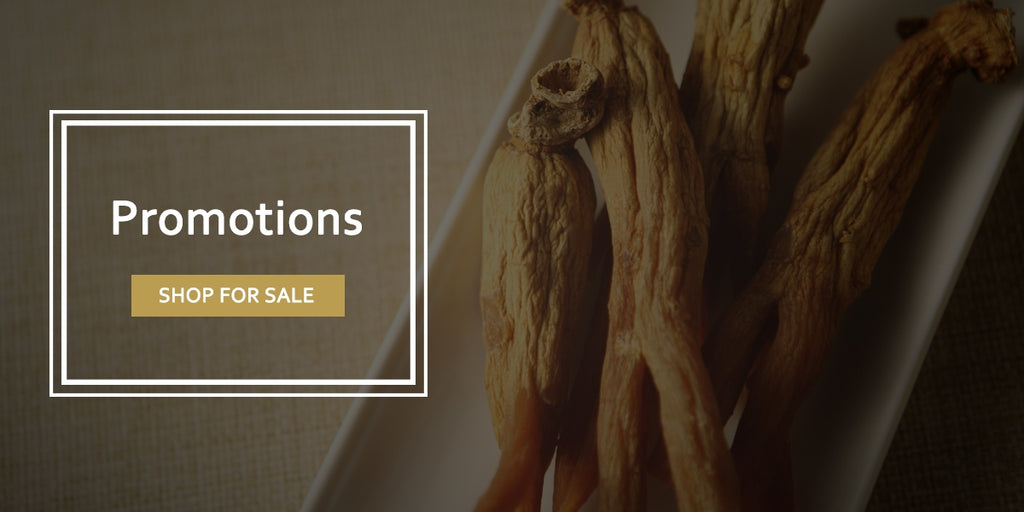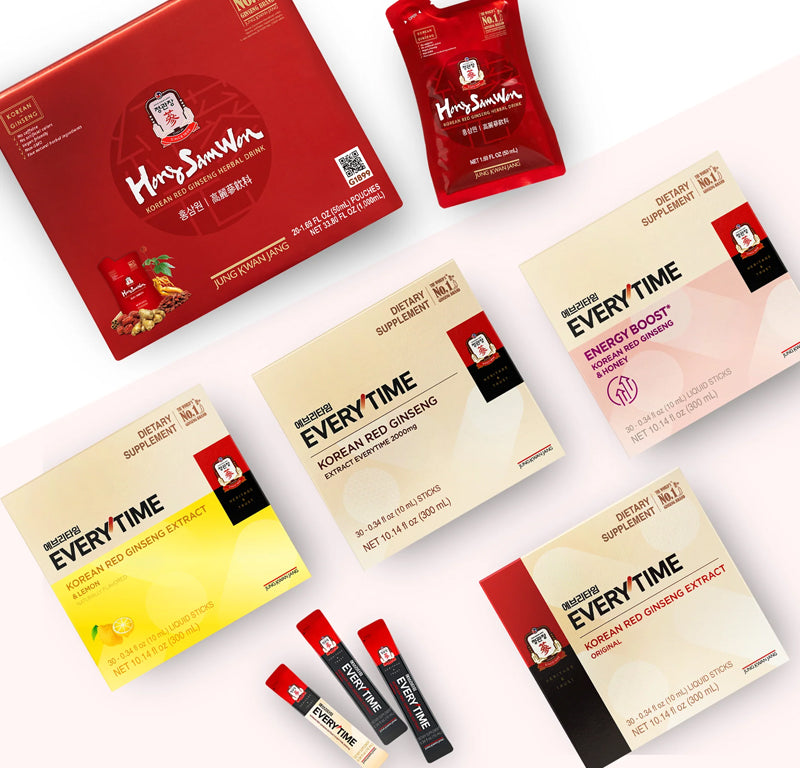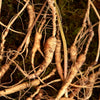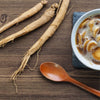Potent Healing Benefits of Korean Red Ginseng on Influenza
Study Reports on Influenza
Coryza, cough, headache, prostration, and malaise are the most familiar symptoms of influenza and normally persists for a week or so. However, according to a report by WHO, it causes epidemics annually in human beings, responsible for 3 to 5 million of severe cases and nearly 250 to 500 thousand deaths2 worldwide. The Spanish flu epidemic of 1918 (a lethal subtype of influenza A virus) nearly killed a whopping 50 million people that corresponded to 3% of the total world population. A matter of major concern about this type of infection is that the virus is adaptive, spreads as quickly as it multiplies, and brings about unexpected pandemic strains such as swine flu (H1N1) and bird flu. The 2009 pandemic of swine flu spread like wildfire across 74 countries and has claimed around 17 thousand lives.
Ginseng: 'All Healing Benefits' of this 'King of Herbs'
Ginseng is one of the perennial herbs, utilized for centuries among Asian and Native American people as an anti-inflammatory, antioxidant, immune-modifying flora. Originally, ginseng has three different varieties: the Korean ginseng (also known as the Asian ginseng), the American ginseng, and the Siberian ginseng. Among them, Korean Red Ginseng has proved itself to be superior in terms of effectiveness since it comprises substances of different groups of saponins and ginsenosides in larger proportions than what is found in other ginseng types. The afore-mentioned medicinal benefits are primarily embedded in the herb's thick roots. Consumers seeking the herb, should go for 6-years-grown ginseng, because younger roots do not have enough potential to generate the health benefits they assure of. Korean ginseng supplements are prepared of 6-years-grown Korean Red Ginseng root extract. Its roots are originally fermented white. The procedure of steaming and drying endows them with red color and locks the nutritional benefits for human consumption. The process makes Red Ginseng highly potent for health purposes and the strongest adaptogenic herb within the species. Its immune-modulating character stimulates the natural killer cells such as T-cells and b-cells by restraining oxidative stress and moderating the anti-oxidant defence system. Roots (mostly), stems, leaves of ginseng, and their extracts have been used for moderating immune homeostasis and enhancing resistance to various ailments due to microbial attacks.

Ginseng: Resistance and Immunity
A recent study on ginseng quotes, “Ginseng polysaccharide has been known to have multiple immunomodulatory effects. In this study, [they] investigated whether Panax ginseng polysaccharide (GP) would have a preventive effect on influenza infection. Administration of mice with GP prior to infection was found to confer a survival benefit against infection with H1N1 and H3N2 influenza viruses.”3 Ginseng was orally administered into the mice after the infection and the experiment exhibited a heavy resistance against the virus and there were fewer inflammatory cells in their bronchial walls. The study strongly suggests Korean Red Ginseng's immune-modifying capability.
The primary moto behind the research conducted by Georgia State University was to identify the effect of Korean Red Ginseng on organic cells. Kang et al. investigated if ginseng is preventive against influenza A virus. It was found that ginseng has a positive effect on lung epithelial cells that are infected by flu. Ginseng also checked the expression of inflammatory genes.
The research was primarily conducted on mice. After infection by influenza A virus, the mice which were orally given ginseng for a long period of time exhibited a strong immunity against viral infections and showed fewer inflammatory cells in the bronchial walls. This suggests the immune-modifying aspect of Korean Red Ginseng. In Kang's forthcoming publication, in International Journal of Molecular Medicine, he sets forth to locate antiviral, anti-inflammatory, and anti-RSV characteristics in ginseng. The study finds out that a regular consumption of Korean Red Ginseng bolstered survival of lung epithelial cells against RSV, and prevented the virus from replicating. Besides ginseng suppressed the RSV induced inflammatory genes, which resists forming free radicals which may damage the lungs epithelial cells. Another research shows “that RG extract contains components inhibiting influenza A virus replication in vitro, and that orally administered RG extract not only ameliorates weight loss but also decreases death in influenza virus-infected mice.” 4
Conclusion
Korean Red Ginseng is a nutritional herbal substance that has been used for centuries to increase natural immunity and physical abilities among Asians and Native Americans. Our immune system is a plethora of various cells and tissues with specialized functions of their own and each type responds differently to ginseng. Recent studies on mice as well as human specimens have shown that ginseng is a potent antiviral and anti-inflammatory agent, regular consumption of which can keep viral infections such as influenza A, H1N1, and RSV at bay and reduce the expression of genes that cause inflammation. 5

Citations:
1) King, Margie. Ginseng Can Help Treat and Prevent Influenza (April, 2014)
http://www.greenmedinfo.com/blog/ginseng-can-help-treat-and-prevent-influenza
2) Influenza update – 298, WHO Report on Influenza. (September, 2017)
http://www.who.int/influenza/surveillance_monitoring/updates/latest_update_GIP_surveillance/en/
3) Kang, Sang-Moo et al. Protective Effect of Ginseng Polysaccharides on Influenza Viral Infection. (March 2012)
http://journals.plos.org/plosone/article?id=10.1371/journal.pone.0033678
4) Kim, Jin Young et al. Effect of Oral Administration of Korean Red ginseng on Influenza A (H1N1) Virus Infection.(2011)
http://citeseerx.ist.psu.edu/viewdoc/download?doi=10.1.1.940.4747&rep=rep1&type=pdf
5) Kang, Soowon and Hyeyoung Min, Ginseng, the 'Immunity Boost': The Effects of Panax ginseng on Immune System. (October, 2012)
https://www.ncbi.nlm.nih.gov/pmc/articles/PMC3659612/
-
Posted in
-CheongKwanJang, Health Benefits, Health Supplements
 Stamina
Stamina Energy
Energy Immunity
Immunity Antioxidant
Antioxidant Beauty
Beauty Fitness
Fitness Blood Circulation
Blood Circulation Liver & Heart
Liver & Heart Bones & Joints
Bones & Joints Eye & Brain
Eye & Brain Digestion
Digestion Relax & Sleep
Relax & Sleep For All
For All Men's Health
Men's Health Woman's Health
Woman's Health Kid's Health
Kid's Health Jar
Jar Stick
Stick Pouch
Pouch Root & Slices
Root & Slices Shot
Shot Pill
Pill Tea & Powder
Tea & Powder Candy
Candy

 Our Brand
Our Brand Korean Red Ginseng
Korean Red Ginseng Premium Ingredient G1899
Premium Ingredient G1899





